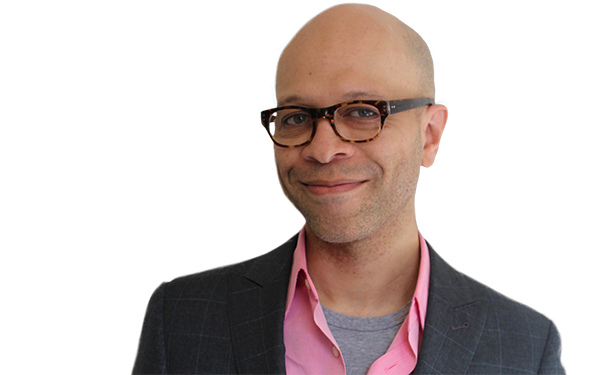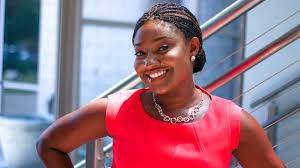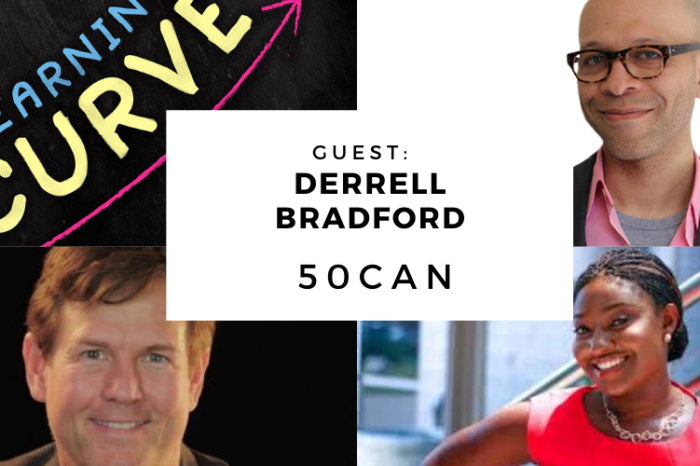Derrell Bradford on the Future of Education Reform
This week on “The Learning Curve,” Bob Bowdon is joined by guest host Alisha Thomas Cromartie, personal growth coach, education leader, and former Georgia state legislator. They talk with Derrell Bradford, Executive Vice President of 50CAN, about the myth that school choice programs siphon funds away from traditional public schools, the D.C. Opportunity Scholarship Program, the impact of the 2016 election on the education reform movement, shifts and divisions within the Democratic Party on charter schools and vouchers, and the legacy of the Every Student Succeeds Act.
Stories of the Week: In Kentucky, a school board is about to restrict magnet schools’ ability to remove students for behavior issues, a practice that disproportionately affects minority students. In New Jersey, a judge ruled that a lawsuit can move forward against the state that alleges racial and socioeconomic segregation in the public school system. Is this an issue of race and wealth, or the effective distribution of school resources to ensure high-quality instruction for all students? The New York Times found wide disparities in the content included in commonly used American history textbooks (such as capitalism, immigration, and the legacy of slavery) by the same publisher and authors in California and Texas – what are the implications for the future of our democracy?
The next episode will air on January 24th, with guest Dick Komer, Senior Attorney, Institute for Justice.
Programming note: Co-host Cara Candal is off this week.
Commentary of the Week:
Tweet of the Week:
The @AFTunion‘s endorsement process requires engagement from all our members and we are making sure there is time for that. I don’t see a national endorsement be4 Iowa. #AFTvotes https://t.co/H4270lR0sl
— Randi Weingarten (@rweingarten) January 14, 2020
Next week’s guest: Dick Komer, senior attorney, the Institute for Justice
Newsmaker Interview:
 Derrell Bradford is the executive vice president of 50CAN. In this national role, he recruits and trains local leaders across the 50CAN network for roles as CAN executive directors, fellows, and YouCAN advocates. Derrell frequently contributes to education debates in print, digital, radio and TV media. A native of Baltimore, he attended the St. Paul’s School for Boys and the University of Pennsylvania, where he received a bachelor’s degree in English. He tweets @Dyrnwyn.
Derrell Bradford is the executive vice president of 50CAN. In this national role, he recruits and trains local leaders across the 50CAN network for roles as CAN executive directors, fellows, and YouCAN advocates. Derrell frequently contributes to education debates in print, digital, radio and TV media. A native of Baltimore, he attended the St. Paul’s School for Boys and the University of Pennsylvania, where he received a bachelor’s degree in English. He tweets @Dyrnwyn.
Guest Co-host
 Alisha Thomas Cromartie is a former six-term state legislator in Georgia. She was co-author of the state’s constitutional amendment to create a state charter authorizer, and author of the state’s intra-district transfer law. She is former Superintendent of Ivy Prep Schools in Atlanta. She is currently a speaker, author, CEO and host of “Fearless Chic,” a podcast for women. She tweets at @AlishaCromartie.
Alisha Thomas Cromartie is a former six-term state legislator in Georgia. She was co-author of the state’s constitutional amendment to create a state charter authorizer, and author of the state’s intra-district transfer law. She is former Superintendent of Ivy Prep Schools in Atlanta. She is currently a speaker, author, CEO and host of “Fearless Chic,” a podcast for women. She tweets at @AlishaCromartie.
News Links:
-
Against opposition, JCPS board members appear likely to end ‘exits’ at magnet schools
- N.J. school segregation lawsuit moves forward, judge orders districts to be notified
- American history textbooks can differ across the country in ways that are shaded by partisan politics
Commentary of the Week:
Get Updates on Our Education Research
Recent episodes:





















